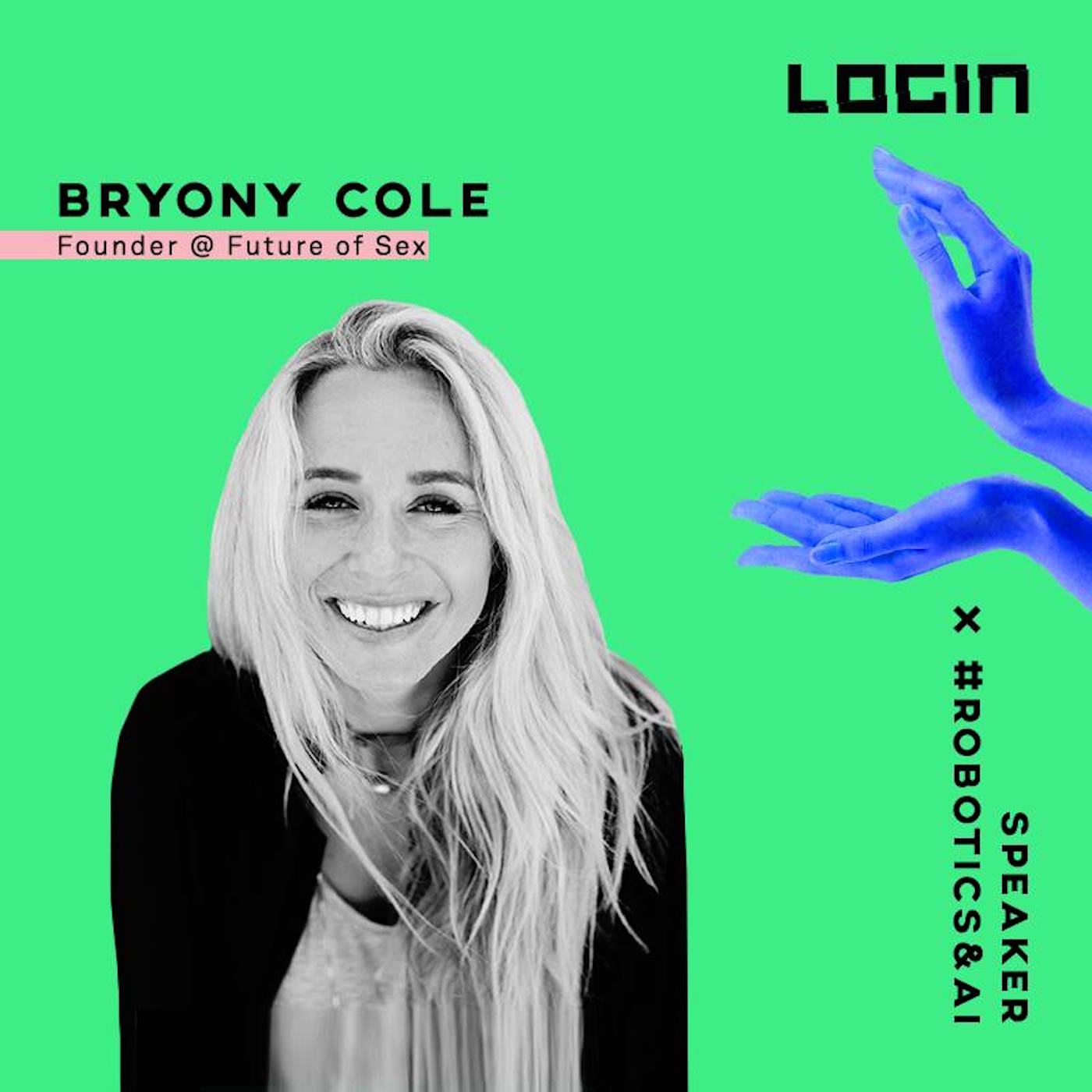
3K
Downloads
27
Episodes
Cultural Producer Jodi Rose invites creative people into the Transit Lounge to talk about life in perpetual motion and visions of the future. A series of internationally nomadic conversations about society, creativity & technology with makers, thinkers and doers. You never know who you'll meet in the Transit Lounge!
Episodes

Tuesday Jun 12, 2018
Bryony Cole talks the Future of Sex & Femtech at Login 2018
Tuesday Jun 12, 2018
Tuesday Jun 12, 2018
Bryony Cole talks the Future of Sex with her clarion call for outspoken freedom around open + positive sexuality, education and expression.
Future + FemTech + Sex + VR + AI + Society + Ethics + Technology
TRANSIT LOUNGE RADIO @ LOGIN 2018
Founder at Future of Sex
Bryony is a founder Future of Sex, a research and media lab focused on the intersection of sexuality and technology. The company was awarded a place in the Google-Walkely Media Incubator and Cole continues to attract global attention for her work empowering women through media creation and organising global hackathons. Bryony, an international speaker, published writer and producer, has been featured in Wired, TechCrunch, The New York Times, Playboy, Mashable, Motherboard, ABC, Financial Review, Brides, Glamour and many other global media.
[Edited Transcript]
BC: My company futureofsex.org explores the intersection between sexuality and technology, or sextech. We do a lot of research into all the new products and services coming out, whether thats robotics, to VR sex education to health and education services on digital platforms. We also run global hackathons where we encourage everyone to come along and hack for a weekend, and develop their own product or service or business around some sort of challenge in sex.
It's open to everyone, we do one every 3 months in a different city, the next one is in New York in August and then we'll be in Europe at the end of the year. We've had specific challenges around providing people with disabilities some form of sexual expression. These are people who are often seen as invisible, who don't have access to sex education.
One of the teams in Singapore developed a sex education program for people who are either blind or deaf, and they're are able to play this game and learn all about intimacy whether through voice activation or be read online on a screen. How can we provide this for everyone, not just your everyday person, but aging population, people with disabilities, people in rural populations that don't usually have access to proper sex education and sexual health resources, and how technology can change that.. And then you've got all the fun stuff for enhancing that which is sex toys, adult entertainment, and even robotics which is what we're here at LOGIN today, discussing.
JR: How do you know that the robot's consented, how do you know that the robot has consented? Is it informed, enthusiastic consent?
BC: Now we're crossing this grey area, from it just being a technology like a sex toy or a sex doll, to this technology that can talk to you, recite you poetry, remember your pizza order. There's a very big question mark over whether sex robots will have rights, or if it's a system like a voice activated Alexa that you've bought and lives in your home and you have ownership over. We all dream it's going to be this Westworld, with sentient beings, but we're not quite there yet, it's still pretty clunky and it's still rote learning. But the projection onto the future is huge, you'll see lots of news about sex workers rights, if robots are considered sex workers what does that mean? And the brothels that are opening up in Spain and across Europe, how do you even begin to negotiate consent with technology? I don't have a specific answer for you as we're continuing to do the research.
We're not quite there yet, but it's amazing how quickly technology is moving to that other side, but will it ever replace a sense of intuition? I don't think it can.
JR: I don't think it can either, but I can understand how addictive it can be, how you can get so swept up in that world, and it can be easier to relate to technology, it can be easier to relate than to humans who are unpredictable, and messy, and might say and do things that you don't want. If you've just got the technology catering to your every whim and desire, so I think there's a shift maybe in how we also negotiate intimacy and relationships, and this could bring up interesting questions in that area.
BC: You see that already in the proliferation of online dating apps, from these profiles where you filled out 40 questions, to this swipe culture, where you can swipe away 50 humans and I think we underestimate how quickly our behaviours can change. It isn't so far-fetched to think that in the not too distant future we will have entire relationships with people that are entirely online, and they will be intimate relationships.
JR: I know, the film Her, where he falls in love with the voice, and it didn't seem very far from now.
BC: in Japan the most advanced in terms of that AI being able to speak to you and treat you like a girlfriend or boyfriend. There's a company called Gatebox, with a cartoon girl (named Azuma Hikari, meaning 'light') in a cylinder and she controls all the things at home but also sends you emotional text message while you're work. And that technology is being marketed at home as a replacement 'girlfriend or wife.' So it kind of does exist already, these ideas that we're falling in love with voices and that concept like 'Her'.
Kotaku: Japanese Company Will Pay Employees Extra Money If They're Married To 2D Characters
JR: It seems to mostly be men falling in love with the woman robot or voice, does it operate in the other direction, are you having conversations with the people who are programming this about how it might operate in the other direction?
BC: It's a slow process, I'll say it's very dominated at the moment by white men, as most technologies industries are, even if we look outside the sexuality aspect of tech, all those virtual assistants, they all have female voices, google home, amazon Alexa are all female voices, so there's definitely an issue there. Also if you talk to the companies, there's not as much a demand from the female side for these technologies, we're actually quite happy in what we have. The biggest growth in what we call vaginanomics, which is vagina plus economics or Femtech, is really around self-pleasure and understanding your body, sexual health resources and new vibrators that don't look offensive, and could sit on a coffee-table or be in a museum bookshop, really catering towards women's needs.
It's one of the areas I was most excited about when I stepped into sextech is wow, we're using virtual reality in classes for education and history, it' s a great tool for learning. Imagine if we transferred that to sex education, where that is by far and above the most neglected curriculum globally. We never learn the real stuff when we talk about sex, we never learn about communication and empathy and intimacy, that's really the real stuff that makes the difference. And so Virtual Reality is such a great tool for that, because it can be private, but you're taken into a world that is interactive, engaging, can be safe. There's experiments in Universities in the state, also bedoink VR which started as a porn company, but has taken responsibility to educate consumers, because this is the default sex education now. So how do we start to change what they're seeing and have some sort of interesting engaging curriculum around sex, that is relevant to kids these days. Like sexting, revenge porn, cyber-flashing all these things that, they didn't exist when I grew up. So how do we reinvent that, and I think we're seeing initial virtual reality applications, mostly through porn companies. For example one that has developed Virtual Sexology, it's designed by a sex therapist, hosted by a porn star, it will take men through a course dealing with premature ejaculation, and for women awareness about their bodies, how to get in touch with your body, how to feel more comfortable. So really cool applications in technology beyond just entertainment.
JR: Crossing that boundary towards intimacy, it doesn't matter what technology you're using, what app you have but at some point it still comes down to you taking that leap.
BC: Yeah it does, you can't manufacture intimacy, it's not efficient like other technology. That's where we need to understand, that's what humans bring to the sex equation is intimacy that's cultivated through shared experiences, that takes time, builds up, has depth, and that's our special sauce!
My vision for the future is all about having a more open, less judgemental, less shameful culture around sex. Just normalising that conversation is a great start, the more we start to talk about sex normally the more we start to be open about our preferences, I think we'll see a better, happier society.
TRANSIT LOUNGE RADIO @ LOGIN 2018
We are LOGIN 2018 – the first, largest, most uncompromising innovation bash in the Baltics. At LOGIN, the roadmap for INNOVATION is TECHNOLOGY x CREATIVITY x BUSINESS. Whether you’re a blockchain geek, a currencies philosopher or a sophisticated designer, if you believe your desk isn’t the only place where innovation happens – you must LOGIN!
Content isn’t everything. Context is everything.
Transit Lounge Radio brings you conversations from LOGIN 2018!
Thank you for tuning in, we hope you've had as much fun listening as we did making the program. Transit Lounge Radio is independently produced, your support keeps the conversation flowing!
Relax in the VIP Lounge
Hang out in the Transit Lounge on facebook
Reviews and stars on iTunes make us happy
Listen on the TLR YouTube Channel
Subscribe to our RSS feed

No comments yet. Be the first to say something!